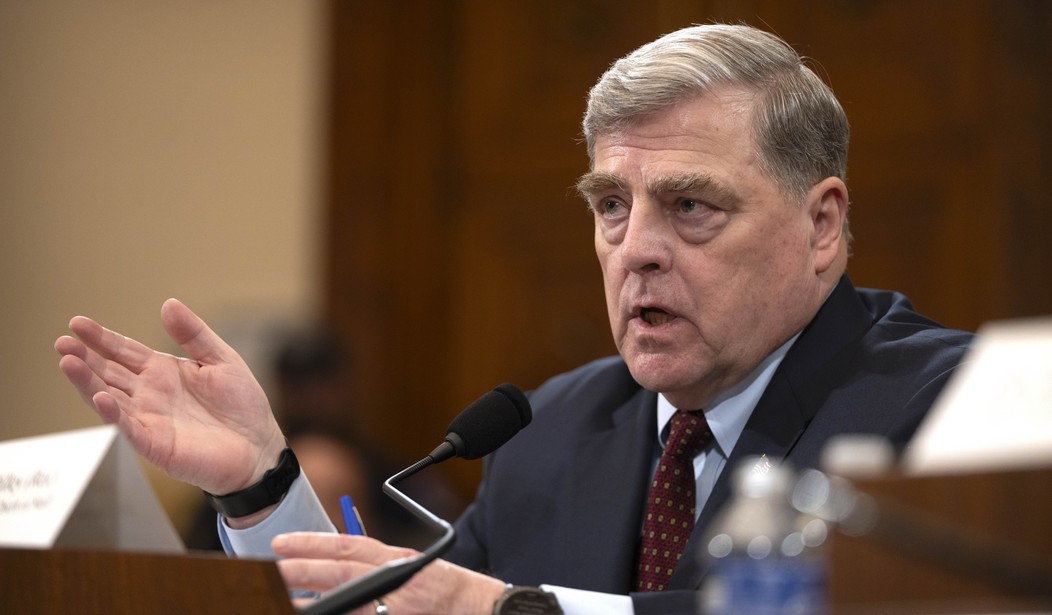The House Foreign Affairs investigation into the disastrous Afghanistan withdrawal is facing new scrutiny after it was revealed that the committee's chairman sought to protect the generals involved.
According to the Washington Examiner's Jerry Dunleavy, who recently resigned as the committee's senior investigator looking into the matter, Rep. Michael McCaul (R-TX) spoke with General Mark Milley and General Frank McKenzie before their House testimonies. During that conversation, the congressman indicated he wanted to "protect" them and even went so far as to give them the questions they would be asked.
McCaul’s deliberate decision to deflect from the failures of U.S. military commanders is perhaps best illustrated by a phone call McCaul had with Milley and McKenzie just ahead of the Committee’s public hearing with them.
“I’m trying to protect you a little bit,” McCaul told McKenzie on that call (as I openly took notes), alluding to the righteous indignation of the Gold Star families at the military’s lack of candor.
McCaul told the generals at the start of the call, conducted on speakerphone in his private office, that he had told other members of Congress that he would “use the gavel” if any of the congressional questions did not “show proper respect” to Milley and McKenzie.
The Chairman also previewed to the generals all the questions he planned on asking them — telling them he was doing so “so there are no surprises.”
McCaul also provided the generals with talking points regarding some of the more contentious questions surrounding the withdrawal. Further, he pointedly said that the responsibility for the massive failure does not rest on the shoulders of McKenzie and Milley.
McCaul said he would be asking McKenzie about his decision to turn down the Taliban’s offer in Doha on August 15, 2021, which would have kept Taliban forces out of Kabul and allowed the U.S. to secure the city — a baffling decision by McKenzie, which, in my view, greenlit the Taliban’s final conquest of the Afghan capital. McCaul immediately began supplying McKenzie with excuses the general could use during the hearing, telling him, “I know you had a lot of constraints on troop forces. … My understanding is the restraints you had from the orders that you were given to follow that you just didn’t have the troop presence to even fulfill that even if it was a serious offer.”
And McCaul made it abundantly clear to the two generals that he would be letting them skate from accountability: “As I’ve talked to you before, General Milley, you know, that’s where the facts are leading us, that this is not so much a DOD failure — it was a State Department and White House failure.” At the end of the call, McCaul told Milley and McKenzie that “I know that what happened in Afghanistan does not rest on your shoulders but rather on others in the administration.”
Both McKenzie and Milley have long been derided by Republicans, with Milley's behavior during the 2020 presidential transition being especially egregious. Specifically, the general called his Chinese counterpoint pledging to alert the adversarial nation if Donald Trump ordered any kind of attack.
SEE: Mark Milley Pledged to the Chinese to Commit Treason to Underminde Donald Trump
Why McCaul wanted to absolve Milley and McKenzie of any blame for the Afghanistan withdrawal wasn't immediately apparent after Dunleavy's report was published. While the White House did and does hold the ultimate responsibility, many operational failures on the ground also demanded accountability, and both generals were at the forefront of that. McCaul should be expected to explain his behavior.















Join the conversation as a VIP Member